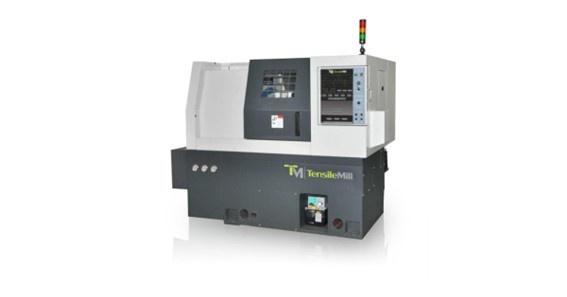In modern production, CNC (Computer Numerical Control) machining is a cornerstone. Since its invention in the 1950s in the U.S., CNC technology has revolutionized manufacturing with unmatched flexibility and efficiency. It is due to CNC machines’ capabilities to perform multiple operations with high precision and minimal error that they are used in industries ranging from automotive manufacturing to the manufacture of musical instruments today.
In 2024, CNC machining will be a symbol of industrial innovation and efficiency, not just a method of production. According to estimates, the global CNC market will reach $115 billion by 2026, demonstrating its increasing relevance in the manufacturing sector. This article explores the anticipated trends and technological advancements shaping the future of CNC machining, providing insight into what can be expected soon.
Technological Advancements in CNC Machining
A significant transformation is underway in CNC machining, driven by the integration of advanced technologies such as Artificial Intelligence (AI), Machine Learning (ML), and the Internet of Things (IoT). Increasingly, these technologies are becoming an integral part of CNC machining, heralding a new era of precision, speed, and efficiency.
AI and Machine Learning Integration
By enabling smarter and more adaptive systems, AI and ML are revolutionizing CNC machining. By learning from past operations, CNC machines continue to improve their performance. By predicting potential errors and maintenance needs, artificial intelligence algorithms minimize downtime and enhance productivity. Furthermore, AI-driven CNC machines are capable of adapting to varying conditions, such as changes in material properties.
IoT and Enhanced Connectivity
Incorporating IoT technology into CNC machining facilitates smooth connectivity between machines and systems. With IoT, real-time data can be collected and monitored, allowing for better resource management and more informed decisions. Also, this connectivity allows for remote diagnostics and control, allowing CNC operations to be managed and troubleshooted from anywhere. As a result, a transparent and efficient production environment is created where data flows freely.
Programming and Operational Improvements
Similarly, software advancements are reshaping CNC machining. Programming interfaces have become more intuitive and sophisticated, simplifying the process of creating and modifying CNC programs. The interfaces are becoming increasingly user-friendly, reducing the learning curve for operators. Further, advanced software solutions are improving toolpath optimization, reducing machining times, and prolonging tool life.
The integration of AI, ML, and IoT into CNC machining is setting the stage for a future where machines will be more than just tools. CNC operations will be made more adaptable, reliable, and cost-effective with these advancements in precision, speed, and efficiency. In 2024, these technologies will become more prevalent, transforming CNC machining fundamentally.
CNC Machining in Industry 4.0
The fourth industrial revolution, or Industry 4.0, emphasizes the integration of digital technologies in manufacturing, and CNC machining is becoming increasingly important. In this industrial paradigm shift, CNC machining is not just adapting, but also becoming a driving force.
Integration with Industry 4.0
Cyber-physical systems and CNC machining are increasingly entwined in Industry 4.0, which represents the convergence of physical and digital technologies. With this integration, machines and operational systems can exchange data in real-time and communicate better. The CNC machining industry is moving beyond standalone operations into a larger, interconnected manufacturing ecosystem. For Industry 4.0 to achieve its heightened levels of automation and efficiency, this evolution must occur.
Impact of Big Data and Smart Factories
Optimizing CNC processes requires big data analytics. Manufacturers can gain insight into machine performance, predict maintenance needs, and enhance production efficiency by analyzing vast amounts of data generated during CNC operations. CNC machining processes are being streamlined by smart factories, which are characterized by their digital connectivity and intelligent systems. As CNC machines become intelligent entities capable of self-optimization, they can analyze and act on data in real time.
Adapting to Automated and Interconnected Environments
Throughout 2024 and beyond, CNC machining will be integrated even further with automated systems and IoT devices. Through this integration, CNC operations will become more autonomous, allowing machines to self-correct and adjust based on real-time feedback. Through an interconnected production environment, CNC machines will also be able to communicate and collaborate with other systems and robots, optimizing the entire manufacturing process.
In the age of Industry 4.0, CNC machining will become more than a manufacturing process. It will be a critical component of intelligent and adaptive production environments. CNC machining will not only be enhanced, but will also redefine the manufacturing landscape, making it more agile, efficient, and responsive to the demands of a changing market.
Sample Preparation Machines as an Example of Evolving CNC Machines
One major advancement in CNC is the development of equipment for preparing tensile samples. In terms of quality assurance and material testing, this equipment exemplifies the recent advancement in CNC technology.
Materials scientists and engineers use tensile sample preparation equipment, a specialized form of CNC machinery, to prepare specimens for tensile testing. A tensile test is performed with these machines by precisely shaping materials into standardized test samples. Equipment is essential in determining the mechanical properties of materials, such as their strength, ductility, and elasticity.
Precision engineering and advanced control systems are incorporated into modern CNC-driven tensile sample preparation machines. From metals to polymers, they can handle a range of materials, making them versatile across industries. The precision machining capabilities of these systems enable the creation of samples with exact dimensions and surface finishes, which are essential for accurate testing.
Source such advanced equipment from reputable and reliable companies known for their quality and innovation in CNC technology. However, it is difficult to find trustworthy companies that provide reliable CNC equipment specifically designed for tensile sample preparation, but it’s worth it.
In addition to being tools for sample preparation, CNC machines represent the convergence of technological innovation and practical application. As CNC technology continues to evolve, these machines are expected to become even more sophisticated, with features such as enhanced automation, greater connectivity, and improved user interfaces, further streamlining the sample preparation process in various industrial and research applications.






